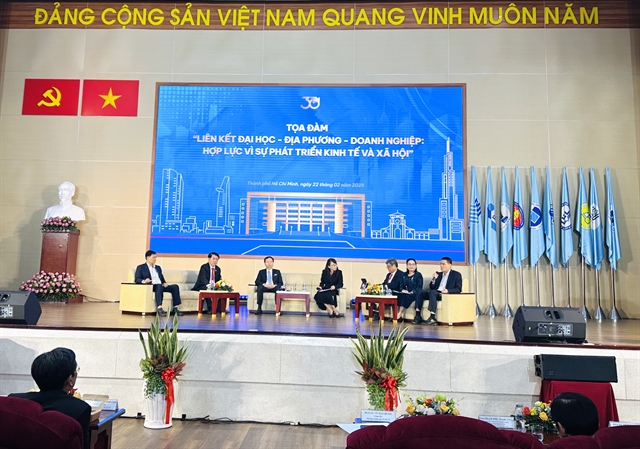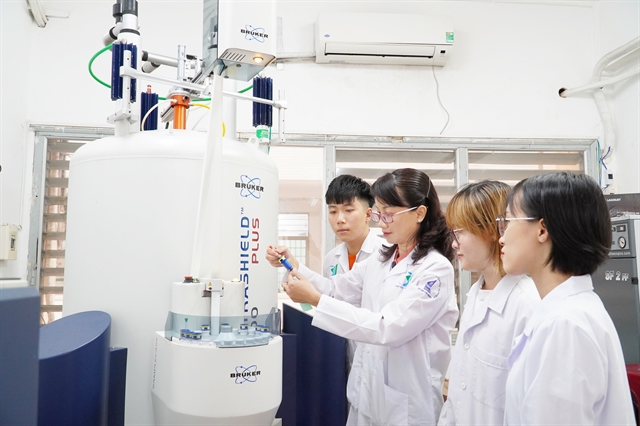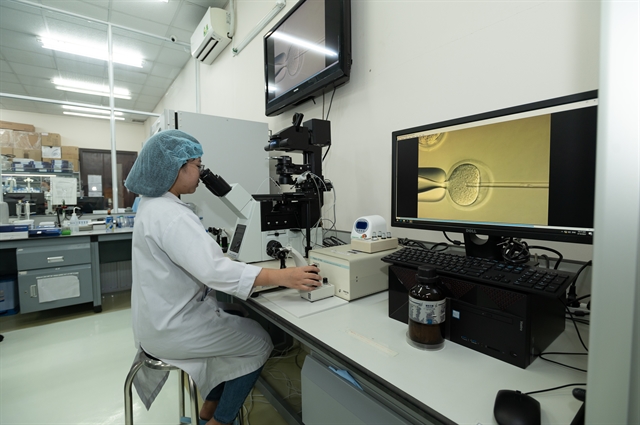 Society
Society

 |
| Central Laboratory for Analysis of the Việt Nam National University-HCM City. — Photo Courtesy of VNU-HCM |
Nguyễn Diệp
HCM CITY — National University - HCM City (VNU-HCM) continues to assert its leading position in scientific research in Việt Nam by significantly increasing its publications in prestigious international journals, particularly within the Scopus database.
According to the latest 2025 statistics, the total number of scientific publications by VNU-HCM in the Scopus database has reached nearly 20,000 articles. In 2024 alone, nearly 3,200 articles were published, accounting for 13.6 per cent of the country's total publications, making VNU-HCM the leading institution in the country for international publications.
The articles published in reputable international journals have contributed to enhancing VNU-HCM's academic standing and promoting the country's scientific integration into the global community.
This success stems from the university’s clear strategy focused on research quality, human resource development, and the creation of a favourable academic environment.
One of the key factors behind this success is a well-structured research encouragement policy and substantial investment in strong research groups. Young scientists and lecturers are provided with favourable conditions to pursue long-term research projects with stable funding sources.
Long-term strategy for promoting research excellence
VNU-HCM has set a clear objective not only to increase the number of publications but also prioritising research quality.
Assoc. Prof. Dr. Vũ Hải Quân, chancellor of VNU-HCM, emphasised: "Our strategy is not about chasing publication numbers but focusing on research with high practical value that contributes to socio-economic development and addresses pressing societal issues."
To achieve this goal, VNU-HCM has implemented a series of comprehensive measures, including strengthening international research collaborations, encouraging faculty members to study and conduct research at globally renowned institutions, enhancing quality assessment criteria for academic publications, and providing substantial rewards for research published in top-tier journals.
In the coming years, the university aims to further increase the quantity and quality of international publications, striving to position itself as a leading research centre in Southeast Asia.
"With the right investments and strong domestic and international collaboration, we are confident in propelling VNU-HCM to become a leading research hub in the region and on a global scale," he said.
The university’s leadership also expects that its research contributions will help address national challenges and foster sustainable social development.
 |
| Biotechnology experiment at School of Biotechnology of International University under the Việt Nam National University-HCM City. — Photo Courtesy of VNU-HCM |
Developing human resources, building research capacity
According to VNU-HCM’s Department of Science and Technology, VNU-HCM not only prioritises research quality but also focuses on training and developing high-quality research personnel.
Each year, the university organises various training programmes, seminars, and international scientific forums to enhance research capacity, particularly for young scientists and faculty members.
Regular international seminars held at our university help researchers and lecturers explore new research directions, improve academic writing skills, and publish international articles. As a result, the quality of VNU-HCM’s research has significantly improved.
A crucial part of VNU-HCM’s strategy to increase international scientific publications is investing in modern facilities and providing maximum support for research activities.
The university’s State-of-the-art national key laboratories, such as the advanced materials key laboratory and the Nano materials laboratory, have become leading research hubs, enabling scientists to carry out internationally recognised studies.
VNU-HCM has made substantial investments in research infrastructure to create an ideal environment for scientists. This support has played a crucial role in enabling research teams to conduct major, groundbreaking projects.
The university’s research focuses on highly applicable fields such as bio-medicine, new materials, artificial intelligence, environmental science, and climate change, attracting significant international attention and recognition.
Thanks to a well-planned strategy and effective investment, its researches not only reach a broader audience but also have a strong impact, attracting many international partners for collaboration. — VNS




